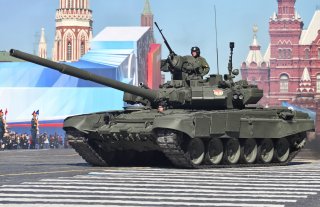Aid to Ukraine and Israel is Connected
The conflicts in Ukraine and the Middle East are fundamentally about the contest between two competing ideologies: authoritarianism and liberal democracy.
President Joe Biden’s October 20 speech tying together support for Ukraine and Israel as a battle for the fate of democracy is spot on. The war in Ukraine, like the conflict in the Middle East, is about what kind of ideas will prevail globally.
In the early 2000’s the enemy was radical Islam after Al Qaeda carried out the deadly 9/11 attacks. As President Bush’s Administration fell in disarray and Barack Obama won the bid for the White House, the topic of radical Islam began to fade away. Yet, as ISIS began its monstrous operations in Iraq and Syria, the United States redirected its attention to Islamist terror. However, Obama later signed a nuclear agreement with Iran that did not include Iran’s support for terrorist groups.
Meanwhile, Russia, which focused on radical Islam as it crushed the separatist movement in Chechnya, has turned to counteract NATO expansion in Eastern Europe and the former Soviet Republics.
Thus, Russia proceeded to invade Crimea and afterward invaded Ukraine to prevent it from shifting to NATO and the West.
Furthermore, Russia is part of an anti-American alliance with China and ominous countries such as Iran, North Korea, Cuba, Venezuela, and Nicaragua.
Iran supplied Shahid kamikaze drones to Russia. North Korea is in the process of providing weapons to Russia.
Russia also systematically supports parties, groups, and Western governments that oppose liberal democracy. Russia has strong ties to the illiberal Viktor Orban in Hungary and non-liberal parties in Europe, including Marine Le Pen’s National Rally, Jean-Luc Mélenchon’s La France Insoumise, and others.
Russia has expanded its influence in Latin America by building alliances with and providing weapons to dictatorships such as Venezuela, Cuba, and Nicaragua and launching a disinformation campaign against the United States.
As part of Russia’s global agenda, Moscow submitted a UN Security Council resolution calling for a ceasefire and did not condemn Hamas’ atrocities in Southern Israel. Furthermore, Russia condemned Israel’s military campaign in Gaza.
Russia wants to weaken the West and liberal democracy. Therefore, it politically supported Hamas. Likewise, as violence in the Middle East escalated, Russian Foreign Minister Serge Lavrov visited Iran after stopping in China and North Korea.
This is precisely why Russia must not be victorious in Ukraine. If the United States wants to continue to play a role in shaping the global arena and liberal democracy, the United States and Europe must help Ukraine survive and not allow Russia to occupy more territory beyond Crimea. For the time being, there is no reason to end the war. Current attempts in the U.S. Congress to reduce or cut aid to Ukraine are counterproductive for the morale of Ukrainian fighters and for America’s global agenda.
Luis Fleischman, Ph.D., is co-founder of the Palm Beach Center for Democracy & Policy Research, professor of Social Sciences at Palm Beach State College, and the author of the book Latin America in the Post-Chavez Era: The Security Threat to the United States.
Image: Creative Commons.

